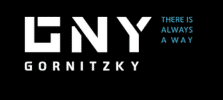Choosing a trademark may seem trivial but it can be very tricky. Consequences for your business can be dire if you get it wrong. Here’s why:
Trademarks and brands. People often confuse them. The two concepts are interlinked and both relate to a company’s reputation – but they are not the same. While the latter is a strategic and marketing concept the former is a type of intellectual property right. They are connected since trademarks are the main legal tool used to protect brands – and more specifically the reputation embodied in a brand.
Choosing a brand may seem trivial. It is not – not from a marketing and strategy perspective and not from the trademark perspective. Here is where it gets complicated: the two concepts may (sometimes) actually pull you in two opposite directions.
Let us pause for a moment and think about brands. Brands are among the most valuable assets a company can have. A strong brand is a major contributor to a company’s value. Take Apple for example. According to Forbes magazine Apple’s brand is the most valuable brand in the world, valued at US$ 182.8 billion[1]. As Apple’s market cap recently passed US$ 1 trillion[2], it can be said that roughly a fifth of Apple’s value can be attributed to the value of its brand. In other words, Apple’s brand is undoubtedly one of its most valuable strategic assets. The same is true for other well-known brands.
Why are brands so valuable? Because they embody a business’s reputation. Jeff Bezos once said that “a brand for a company is like a reputation for a person”, but a brand for a company is not like a reputation – it is the essence of reputation. It captures and embodies the sentiment and beliefs consumers have about the company, its values and its products or services. A strong brand means positive reputation, which will be one of the main reasons many will choose to buy the products. When a brand has positive value consumers want to be associated with the brand and what it stands for and they believe that the products sold under the brand represent certain values and have certain qualities.
When you choose a brand for your company, or for a specific product, service, technology etc., you will normally get inputs from your marketing people, your sales people, your advertising agency, maybe your strategy consultants. Would you also ask your lawyer? You should. Why, you ask? Read on.
Branding a company, or a product or service, is an art. There are many ways of doing it, many philosophies about what makes certain brands great. But our experience working with clients shows that many people in business today seem to think that names that say something about the company or the product make the best brand names. If you can choose a brand and at the same time convey to consumers what the product is, what it does or hint at some positive attributes the product has then you are onto something – a double-whammy. Makes sense, right? Not always.
Here is the problem: when it comes to brands and trademarks, there is a conflict between marketing aspirations and the legal reality. You see, trademarks are the main legal tool for protecting the reputation embodied in brands. Neglecting trademarks and not investing in them means risking your entire investment in branding and marketing. Without trademarks, others may appropriate the reputation embodied in your brand or and you may find it difficult to effectively assert exclusivity in your brand and control how it is used and by whom. You may also weaken your ability to commercialize and benefit from your brand. In other words, your brand ROI will significantly weaken. So trademarks are extremely important. But here’s the thing: the legal rules according to which trademarks behave, i.e. how they are created and protected, are sometimes in direct conflict with marketing sense.
Trademarks are generally judged by their strength. A strong trademark will have better chances of being registered and will be afforded broader protection. It will also be more difficult to invalidate or misappropriate. How do we judge the strength of a trademark? Generally by how distinctive it is – the more distinctive the mark the stronger and better-protected (or protectable) will it be.
There are two types of distinctiveness when considering a trademark – absolute (or inherent) distinctiveness and relative distinctiveness. Relative distinctiveness measures how different the mark is from other marks, i.e. whether it can be easily distinguished from the marks of others. Absolute (inherent) distinctiveness looks more at the nature of the mark itself and asks whether, by its nature, it can be used to identify the goods or services of a specific enterprise. If a mark is generic or descriptive it will not be considered distinctive and consequently it will be more difficult to protect – and even if it can sometimes be protected it will enjoy weaker protection (i.e. its scope will be narrower and it will be more difficult to enforce).
Now let’s go back to the marketing people. We all (hopefully) know enough to avoid generic marks, but many marketing people will still use descriptive or laudatory terms in their branding effort. It may make sense to call your new chain of healthy-hearty fast food joints “Healthy Kitchen” but it will be extremely difficult for you to secure any legal rights in it. You may think that naming your event space “Wedding Place” is smart but, as a trademark, it would be suicide.
Generally it is better, from a trademark perspective, to choose a brand which is either a made-up word or a word which is arbitrary (i.e. it has no meaning with respect to the goods or services to which it applies – think “Amazon” for e-commence). And if your marketing people complain – remind them that the most valuable brand in the world uses a fruit to sell smartphones and computers.
[1] https://www.forbes.com/powerful-brands/list/. Obviously there is no one agreed-upon way to measure brand value and different methodologies lead to different results, but all seem to agree that Apple’s brand is one of the most valuable in the world and that it’s monetary value is somewhere in the range of US$ 150-300 billion.
[2] https://www.cnbc.com/2018/08/02/apple-hits-1-trillion-in-market-value.html







